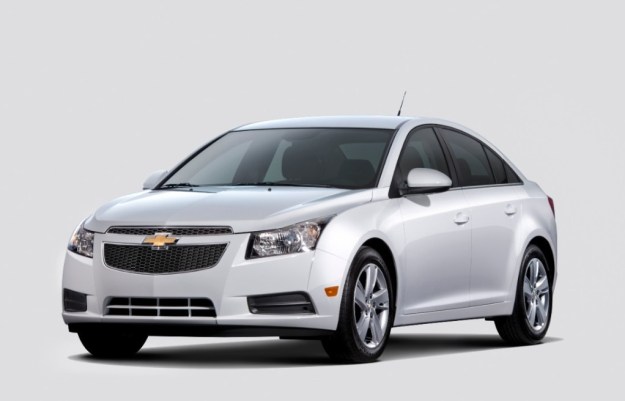 The new Chevrolet Cruze Clean Turbo Diesel could prompt more Americans to consider buying a diesel who might not have ever considered it as an option before.
The new Chevrolet Cruze Clean Turbo Diesel could prompt more Americans to consider buying a diesel who might not have ever considered it as an option before.
While widely popular outside of the U.S. market, a lot of Americans probably still have a negative view of diesel vehicles despite being aware of the potential fuel savings.
Even with all the advancements made in the technology, the image of pulling up to a light and hearing a truck rumbling with a diesel badge is probably a more accurate picture of what a lot of middle Americas think of diesel cars.
I’d be willing to bet that many American consumers have no idea that luxury carmakers like Mercedes-Benz and BMW now offer diesel-powered sedans in the U.S. And if they do, it probably means little considering that the cars are out of their price range.
I’m not even sure that a lot of Americans know that Volkswagen offers a very affordable diesel in the U.S.
However, with a starting price just under $26,000 and an estimated EPA-of 46 MPG on the highway, the diesel technology tied with a highly-recognized American nameplate like Chevrolet could change that.

Available in some U.S. cities in early Spring, the new 2014 Chevrolet Cruze Clean Turbo Diesel is powered by a 2.0L turbo-diesel engine that gets an estimated 148 horsepower (110 kW) and estimated 258 lb-ft of torque (350 Nm).
The diesel model, which generates 90 percent less Nitrogen Oxide (NOx) and particulate emissions when compared to previous-generation diesels, also has an advanced overboost feature that helps to increase torque to 280 lb-ft (380 Nm) for stronger acceleration in driving situations like entering freeway traffic.
Equipped with a six-speed automatic transmission, the Cruze Diesel has an estimated range of 700 highway miles on one tank of diesel fuel based on the EPA highway estimate and the vehicle’s fuel tank capacity.
The new 2014 Chevrolet Cruze Clean Turbo Diesel, which Chevy claims has the best EPA-of any other non-hybrid passenger car in America, has an estimated range of 700 highway miles on one tank of gas.
That’s about 10 hours of highway driving, which I suspect will spark a lot more interest in clean diesel technology in the U.S.


